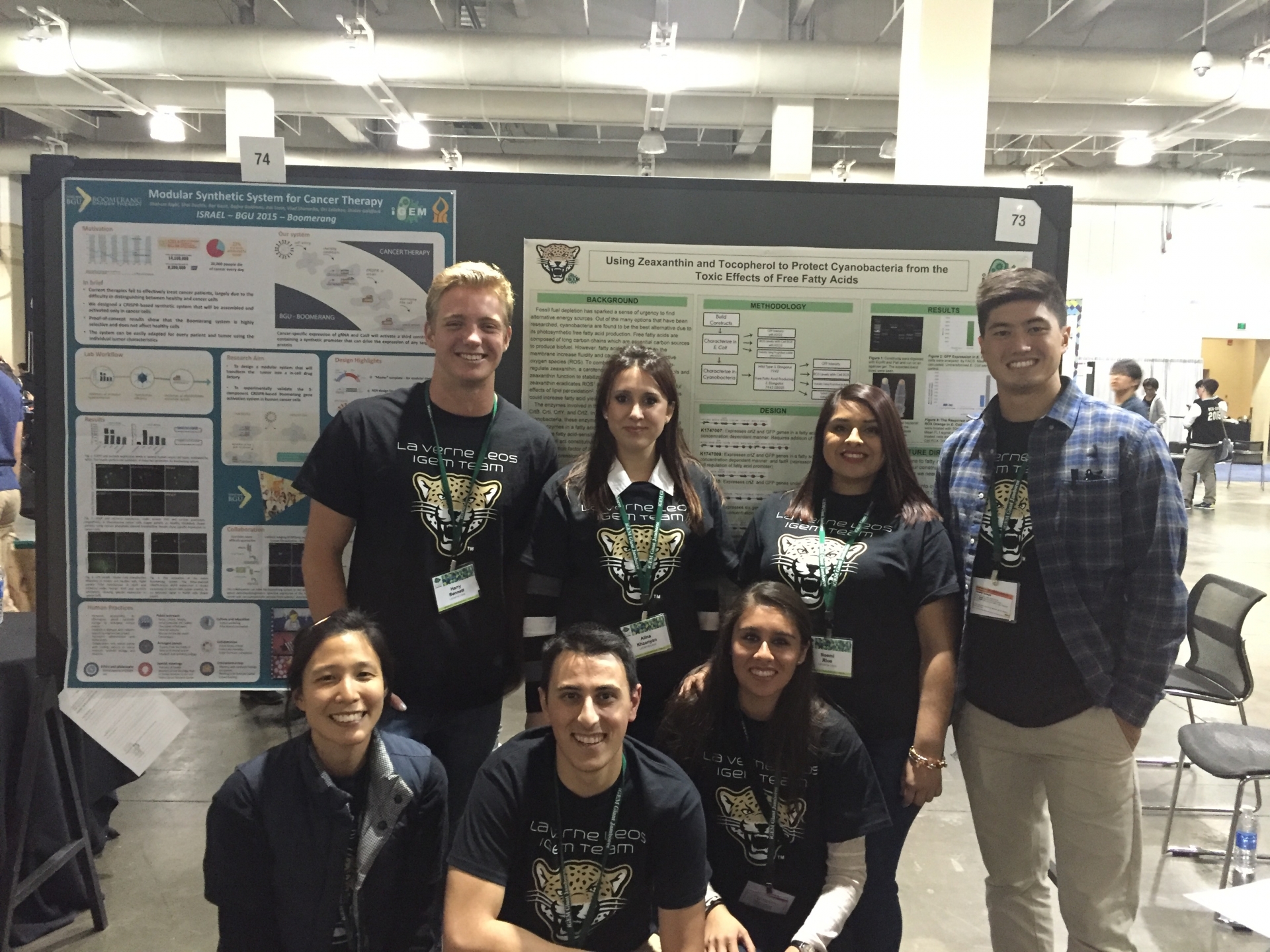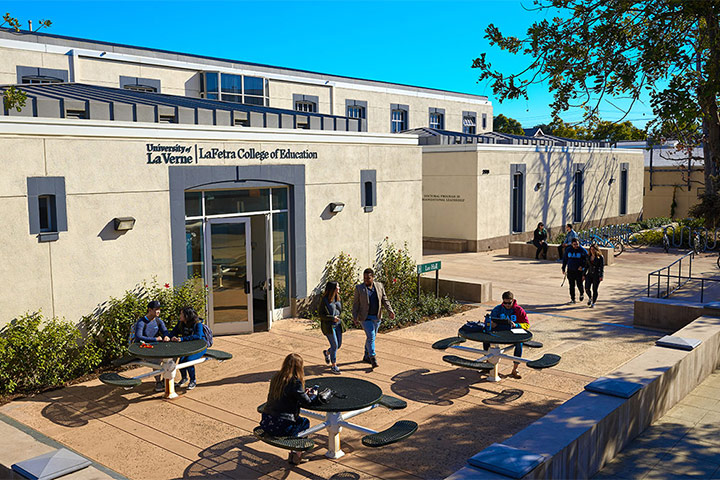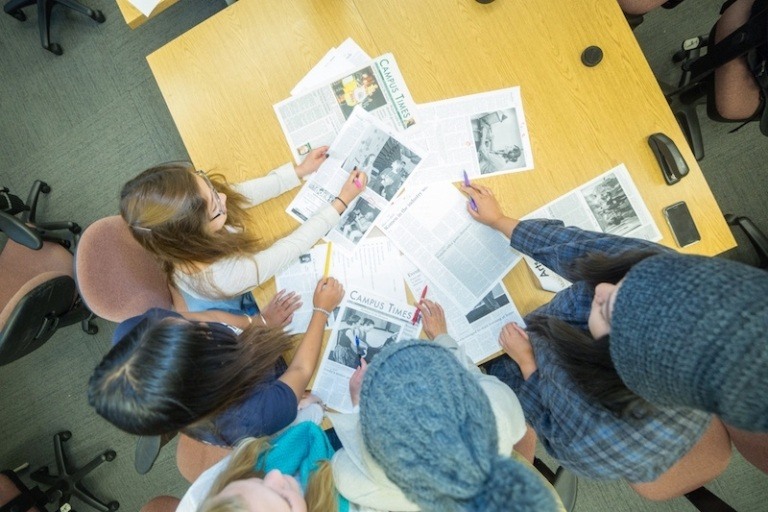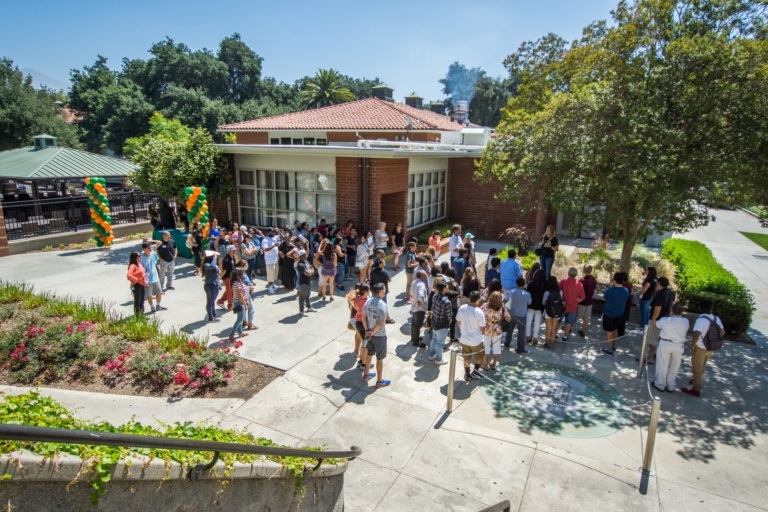La Verne Takes Bronze in First Showing at iGEM Biology Competition

Summer vacation for a dozen University of La Verne and La Cañada High School students meant spending about 40 hours per week experimenting on fossil fuel alternatives. They worked much of that time in the lab, but also stepped outside their comfort zone to explore marketing, fundraising and community outreach for the project.
And when it came time to share their findings with the rest of the world this month, they were ready.
“They really knocked it out of the park,” said Assistant Professor of Biology Jennifer Tsui, who advised the team along with Yousef Daneshbod, Associate Professor of Mathematics.
The team, called “The La Verne-Leos,” flew to Boston for the 12th annual International Genetically Engineered Machine 2015 Giant Jamboree, the world’s premier synthetic biology competition. The team earned a bronze medal for its “Bacterial Biofuels” project, making their iGEM debut a success.
The conference took place Sept. 24-28 and drew 2,700 people, including 259 teams from all over the world who gave presentations on their work. Students gave 20-minute presentations to judges, and also answered questions from judges during “poster presentations,” Tsui said. The event included breakout sessions on preparing for graduate school, a career fair, and other seminars.
“We were able to compete and learn from some of the most well-known universities from around the world. As a team, we did well for our first year in competition,” said Andrew Okimura, a junior biology major who plans to become a veterinarian.
The La Verne team received support from the University for laboratory equipment and registration fees for the competition, and numerous corporate sponsors also provided financial support. But iGEM expects teams to reach beyond the lab into other skillsets, such as fundraising to pay for their trip to the conference, developing and maintaining a website to promote the project and conducting community outreach to let the public know about their research.
Director of Leadership Annual Giving Grace Casian and her team from University Advancement guided students in using La Verne’s new Achieve Crowdfunding site to raise $5,370 for the trip. Coordinator of Library Technology Amy Jiang and additional library staff helped the team with website and video development. Students conducted outreach at the La Verne Farmer’s Market, La Verne’s summer STEM camp, and taught fifth graders about the project, the future of fuel and studying biology. Team members also collaborated with students from La Cañada High School on research, Tsui said. Team members launched the Synthetic Biology Club on campus to recruit members for future competitions, including students with majors outside of biology.
The project focused on cyanobacteria, a type of bacteria that obtains energy through photosynthesis. Within cells of the bacteria are substances called free fatty acids, which are precursor materials for biofuel. While cyanobacteria is used to produce biofuel, the process is considered expensive and inefficient for large scale production.
Part of the inefficiency comes from the fact that high amounts of fatty acids are toxic to the cells and can kill them, limiting the amount of fuel that can be produced. The La Verne team created stronger, more stable cyanobacteria cells that are able to withstand high amounts of toxicity. Members submitted five DNA circuits to the iGEM registry, which can be used by students around the world for future projects.
Tsui said three members, including Okimura, will continue research on the same project for next year’s competition. Members of this year’s team were Noemi Rios, Andrew Okimura, Mark Karam, Estefania Gomez, Alina Khzanyan, Harry Bennett III, Laura Sahawneh and David Vorobyov from La Verne. Members from La Cañada High School were Alec Lourenco, Christos Menemenlis, Miles Yun, William Fu, Rudra Menon, Cathey Seo and Matthew Yu.
Learn more about the team at the La Verne-Leos website or on Facebook.


